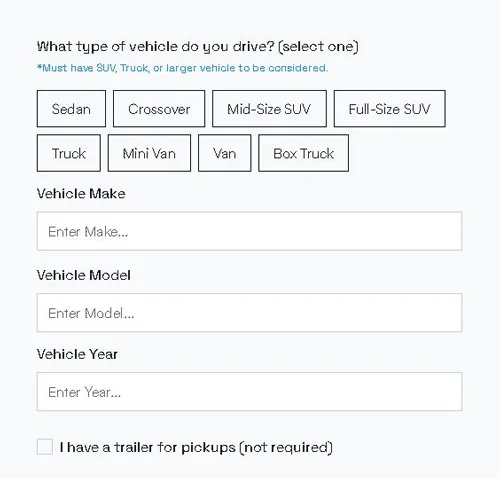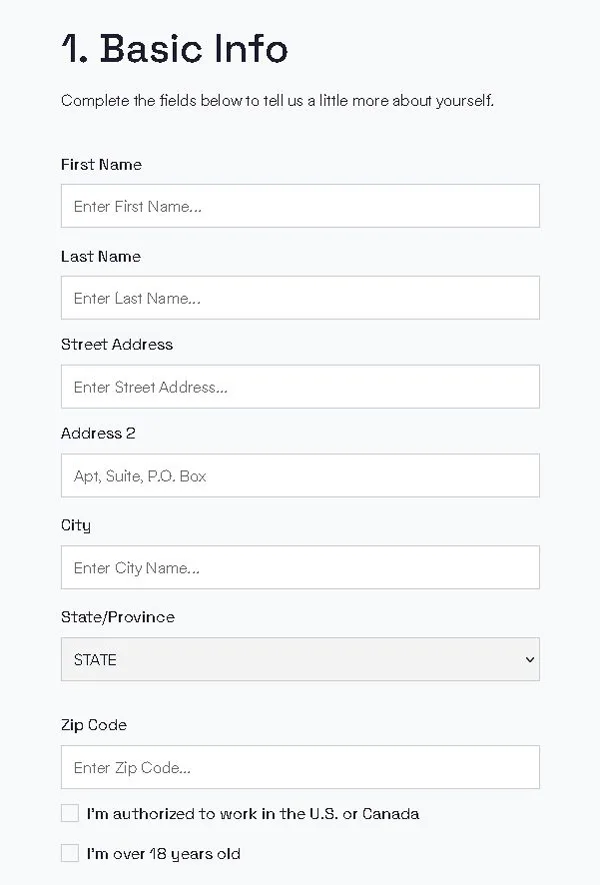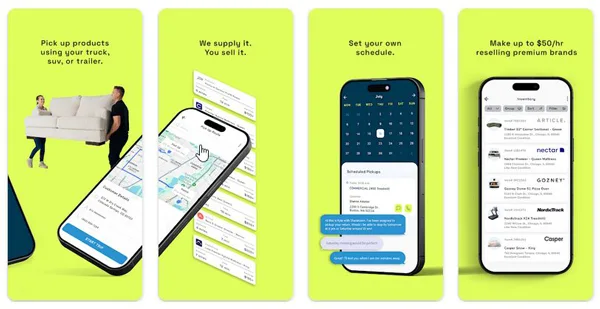Saw an ad once about getting paid to pick up furniture people don’t want anymore. Sharetown. Been around since 2012, which made me a bit skeptical because these kinds of platforms usually close down fast.
The setup is they work with furniture and mattress brands. When someone buys a couch or a bed and then decides they don’t want it, Sharetown handles the pickup. You’re the person doing that pickup. They say you get paid for it, and the furniture either gets redistributed, donated, or disposed of properly instead of ending up in a landfill.
Sounds okay. Show up, load heavy stuff into your vehicle, drive it somewhere, get money. Simple enough that it could actually work.
I wanted to know if it does work. Not the version they describe on their website with the happy faces and the environmental messaging. The version where you actually sign up, wait for assignments, carry a sofa up three flights of stairs, and then see what shows up in your account.
Tested it. Did the pickups. Tracked what I earned versus the time and gas I spent. Saw how their scheduling works, how picky they are about vehicle requirements, how often you actually get work.
This review is what I found. How the whole thing operates, what they expect from you before you can start, what the money looks like in reality, whether the effort matches what you take home. You’ll know by the end if this is something you should try or if your time is better spent somewhere else.
Sharetown picks up the stuff people don’t want anymore. Big stuff. Sofas that didn’t fit through the door, mattresses someone regretted buying, exercise bikes gathering dust.
When a return happens, Sharetown sends someone local to grab it. They call these people Reps. The Rep shows up, hauls the item away, checks if it’s salvageable, cleans it up, and lists it for sale on Facebook Marketplace or OfferUp.
Once it sells, the Rep keeps a cut and pays Sharetown back for what they originally charged for the inventory. You’re essentially buying returned goods cheap, making them presentable, and flipping them.
Sounds straightforward. And sure, there’s an environmental upside. Items get a second chance instead of ending up in a landfill.
But I’m more interested in whether this actually makes financial sense. Because the concept is one thing. The reality of handling large furniture, dealing with buyers who don’t show up, storing items until they sell, and still turning a profit after paying Sharetown back? That’s different.
You need to know what you’re paying upfront. How much work each item requires. How long things typically sit before selling. What’s actually left in your pocket after everything.
Those numbers tell you if this is worth doing or just a lot of effort for minimal return.
Reselling Bulky Returns
Once you’re a Sharetown Rep, reselling becomes your main income source. Returned items, mostly bulky stuff. Furniture, mattresses, exercise equipment.
The process is fairly straightforward. Sharetown connects you with pickup requests nearby through their app. You get a notification when someone needs a return collected. Whether you accept is entirely up to you.
If you do accept, you drive to the customer’s location, grab the returned product, bring it home. Then comes the prep work. You clean the item thoroughly and take clear photos. Presentation actually matters here. A well-presented item sells faster than one that looks neglected or poorly photographed.
You list it on platforms like Facebook Marketplace, OfferUp, Craigslist, whatever local selling apps work in your area. When it sells, Sharetown splits the profit with you. You set the price yourself, which gives you control over potential earnings.

Sounds simple enough. But there are requirements you need to meet before this becomes viable:
- Vehicle requirements: You need something large enough to transport bulky items. SUV, truck, van. A sedan won’t cut it for most pickups.
- Storage space: Items need somewhere to sit until they sell. Could be a garage, spare room, storage unit. Without adequate space, you’ll have a hard time.
Missing either of these? This opportunity probably isn’t for you.
Now here’s where patience becomes important. Earnings don’t happen instantly. You’ll wait for pickup requests to come through, wait for items to sell, wait for payments to clear. There’s also the upfront spending. Gas costs add up quickly when you’re driving to pickups and meeting buyers. Depending on your area, you might pay tolls or parking fees too.
So while becoming a Rep costs nothing, actually earning requires some cash flow. The good news is you can include these expenses into your pricing since you control what you charge.
Think about whether this fits your situation. If you’re after simpler opportunities that don’t require vehicles, storage space, or upfront costs, other platforms exist. ySense, Attapoll, EarnLab, EarnStar, GG2U, Pagazani. Different earning methods entirely, but significantly less complicated.
The buyer pays you. Not Sharetown. You.
Took me a second to understand that. Most platforms handle the money, take their cut, send you what’s left. Here, the buyer gives you cash or transfers it directly through Venmo, and you get paid on the spot.
But Sharetown still needs their share. So they track everything through your Rep dashboard to make sure sales get reported.
The actual flow looks like this:
- Pick up an item – Gets assigned a unique ID, checked out to you in the system. It’s now sitting in your Rep portal as your responsibility.
- List it yourself – Photos, description, price. You handle everything. Post it on Facebook Marketplace, OfferUp, wherever. Sharetown suggests prices sometimes, but you usually set the final number.
- Buyer pays you – Cash in hand or digital payment, straight to you. No waiting on platform processing.
- Report it – Mark it sold in your dashboard, upload proof. Sharetown verifies the item matches what you picked up.
- They calculate the split – Your share gets approved based on final sale price. Sharetown takes their portion for logistics, you keep the rest.
- Your cut hits your account – Direct deposit to your bank.
Now here’s where it gets weird. You already got paid by the buyer, right? But Sharetown needs their cut. So they invoice you.
You send them a payment afterward. Bank transfer, card, whatever method they give you through a secure link.
First time I did this, it felt backwards. Like, why am I paying them after I already got the money? But that’s how they set it up. They’re not touching customer payments at all, so they collect from you once the sale is verified.
You send them their share after every sale. That covers their operating costs while you keep control of the actual buyer transactions.
Gets easier once you’ve done it a few times. The flow makes sense eventually, even if it feels odd at first. You’re basically the middleman handling both sides of the money.
If this sounds like too much back and forth, there are platforms that just… do everything and send you a check. Less control, but simpler.
Depends where you live. That’s the answer, really.
I’m in a city, so when I opened the app, there were listings. Not many, but enough to scroll through. Found a few things that seemed worth picking up and reselling. Took me maybe 20 minutes to spot something I’d actually consider.
Small town, though? You’re going to struggle. I’ve seen this with other reselling platforms. If there aren’t enough people nearby listing items, you’re stuck waiting. Could be days before something new shows up. Can’t earn if nothing’s there to resell.
Metro areas work better because there’s volume. More people means more listings, which means more chances to find something decent. Simple as that.
The earnings aren’t predictable. You’re not completing tasks or surveys on a schedule. You’re waiting for someone nearby to post an item you can flip. Some weeks, sure, you’ll find stuff regularly. Other weeks, nothing.
I tested this over a longer period of time and realized pretty quickly it’s not something you can count on. The potential is there if you’re in the right location. The consistency isn’t. That’s why I cannot consider this option to be profitable. You can make money, but you can’t rely on it being there when you need it.
What Happens When You Need Help?
I needed help figuring out a pickup issue. Checked the Help Center first, found some basics, but my specific problem wasn’t covered.
So I filled out the contact form on the website. You can also email them directly through an address they list in your Rep portal. Both work, though I went with the form because it was right there.
What actually made the difference was the coordinator setup. When you join, they assign you to someone regional, a team lead who becomes your main contact. Not just a name on a screen. This person knows the area, understands what Reps deal with locally, and you can reach them directly when something goes wrong.
I had a listing problem. Emailed my coordinator. Got a real answer that fixed it. Not instant, but way faster than generic support tickets that disappear into nowhere.
The coordinator walks you through how to be a Rep, sorts out pickup issues, answers questions that don’t fit into help articles. You’re not shouting into a automated response system hoping someone notices.
Compared to other gig platforms where support means a chatbot or waiting three days for a standard reply, this felt more human. Still requires you to actually reach out and explain the problem, but at least there’s someone on the other end who knows what they’re doing.
Location matters first. They only work with people in the US and Canada. If you’re somewhere else, you can’t join.
The requirements are pretty basic:
- Age and vehicle
You need to be 18 or older and have access to a large vehicle. Not a compact car, something bigger, because you’ll be moving furniture and large items.
- Storage space
You need somewhere to keep items temporarily. A garage, storage unit, spare room. They don’t say exactly how much space, but think about storing a couch or dining table for a few days.

If you meet those, you fill out an application form. They send you to a webinar that walks through how the Rep system works and what you’ll actually be doing. After watching, you complete a “Rep Readiness” form. Probably their way of making sure you understood everything and still want to move forward.
Then comes verification. They check your driving record and run a background check. Makes sense when you think about it – you’ll be in people’s homes, handling their belongings, driving their furniture around. But it adds time.
Once approved, you get their mobile app and onboarding materials. They show you how everything works before you start taking jobs.
The whole approval process takes a while. You need patience for the verification steps and paperwork. Don’t expect to start earning right away.
Can You Use It On Your Phone?
You can use it on your phone, yes. There’s an app for both Android and iOS.
I downloaded it because I wanted to see if they’d done that annoying thing where the mobile version is basically useless. You know, where you still need a computer for anything important. They didn’t. Everything from the website works in the app.

Which means you can accept assignments without being home. This seems like no big deal until you realize how fast some assignments disappear. I was out once, got a notification, opened the app, accepted it right there. Would’ve been gone by the time I got back to my desk.
That’s the actual advantage. Not that you can browse from your phone (nice, but whatever), but that you can grab something the second it appears. Speed matters when multiple people are looking at the same assignment.
The app itself is stable. I use Android, haven’t had it crash or freeze. Interface makes sense, you can find what you need without hunting through menus. Does what it needs to do.
So if you’re planning to use this, keep the app on your phone. Notifications on. Because waiting until you’re at a computer means you’re already behind everyone who isn’t.
Get Paid $50 Before Your First Sale
Sharetown added a new rep incentive that’s honestly pretty good. You get $50 after your first pickup. Not your first sale. Your first pickup.
Then $200 when you hit 5 sales, and another $250 at 10 sales. That’s $500 total if you make it through.
The $50 for the first pickup is what stands out. You haven’t sold anything yet, haven’t figured out pricing, don’t know which items move fast. But you already have $50. Takes some of the pressure off while you’re learning.
The other two bonuses come at 5 sales and 10 sales. Most people who stay active long enough to understand how the platform works will reach those numbers. It keeps you going through the early stretch when you’re still guessing at everything.
This setup makes testing less stressful. You can try different item types, see what neighborhoods have better pickups, play around with prices. You’re not entirely dependent on commission right away because that first $50 already came through.
Sign up bonuses tend to appear when platforms need more drivers or when people aren’t sticking around. Either way, if you’ve been thinking about joining Sharetown, now’s a better time than waiting. These incentives don’t usually last (they never do), and $500 is enough to make those first weeks feel less like free training.
Advantages
- Free to sign up, zero fees upfront
- Flexible schedule, work when you want
- You control the resale price completely
- Reduces waste, clear environmental angle
- Manage everything straight from your phone
Disadvantages
- Requires large vehicle mandatory (truck or similar)
- Need storage space for furniture items
- You invest in gas and transport first
- Unpredictable income, heavily depends on area
- Required checks (driving record, background)
- Item prep consumes time (cleaning, photos, listing)
Sharetown is legit. You resell bulky stuff like mattresses, furniture, gym equipment. Real platform, real earnings.
But I’ll be honest with you: this isn’t for everyone.
You need a large vehicle. Storage space. Time to prep items for resale. If you’re missing even one of these, you’ll find yourself stuck pretty quickly. I’ve seen people try this with a sedan. Doesn’t work. The items won’t fit, and you end up wasting trips.
The platform doesn’t guarantee earnings. You have to be good at selling. And I mean actually good at it. Some people have a natural talent for figuring out what sells and how to price it. Others don’t. If you fall into the second group (no shame in that), your results will be limited no matter how much effort you put in.
On the positive side, you’re helping reduce waste. Items get reused instead of ending up in landfills. That matters if environmental impact is something you care about. Over time, the impact adds up.
The flexibility is real. You work on your own schedule. No fixed hours. No supervisor breathing down your neck. You decide when to pick up items and when to sell them. That freedom can be worth a lot, depending on your situation.
One major factor: location. Your earnings depend heavily on where you live. Urban areas with dense populations offer more opportunities. More people, more demand, more transactions. Rural areas? Much less activity. I can’t stress this enough. Set your expectations based on where you actually are, not where you wish you were.
If you want more consistent earning options, I recommend checking out established platforms with regular income potential. Sites with steady task availability work better for most people who need reliable extra income. Sharetown can supplement that, but relying on it as your main source might leave you frustrated.
Your experience might differ from mine. If you’ve used Sharetown or have questions about how it works in practice, feel free to share your thoughts.

